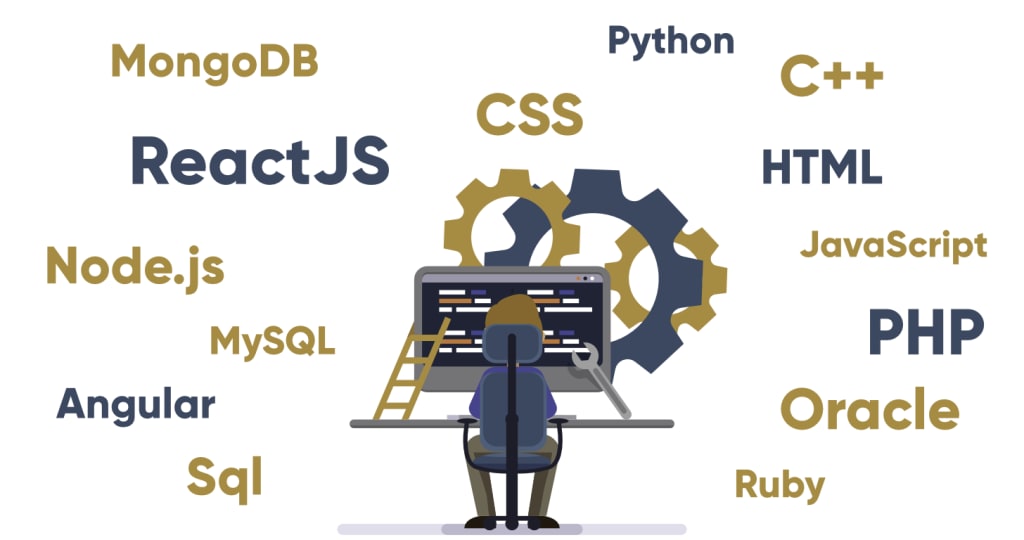All you should know about full-stack developer
full-stack developer

Full-stack development has become increasingly popular in recent years due to its ability to streamline the web development process. Full-stack developers are equipped with a wide range of skills that enable them to build and maintain web applications from start to finish, reducing the need for multiple developers to work on different parts of the project. Gone are the days when you had to hire dedicated developers for each technology.
The term "full-stack" refers to the different layers of a web application: the front-end (client-side) and the back-end (server-side). Full-stack developers are responsible for the entire application stack, from the user interface and user experience design, to the back-end server infrastructure and databases. They are well-versed in both front-end and back-end development, allowing them to work on any aspect of a web application.
Full-stack development has become increasingly important as more businesses move their operations online. In today's digital age, having a web presence is essential for any business, and having a web application that is user-friendly, efficient, and secure is critical to success. Full-stack developers play a key role in building and maintaining these web applications. The skills of full stack developer are in high demand in the tech industry.
Full-stack development is a critical part of web development, and full-stack developers are highly sought-after professionals in the tech industry. They possess a broad range of skills that enable them to work on both the front-end and back-end of web applications, making them essential for businesses looking to build a strong web presence.
Full-stack developers are highly sought-after professionals in the tech industry, as they have a broad skill set that allows them to work on both the front-end and back-end of web applications. In this blog, we will cover everything you need to know about full-stack developers, including their responsibilities, skills, and how to become one.
What is a Full-Stack Developer?
A full-stack developer is a professional who is proficient in both front-end and back-end development. They are responsible for building and maintaining web applications that require knowledge of various programming languages, frameworks, and databases. Full-stack developers can work on all aspects of a web application, including the user interface, the business logic, and the server-side code.
Responsibilities of a Full-Stack Developer
Full-stack developers have a range of responsibilities that require them to work on both the front-end and back-end of web applications. Some of these responsibilities include:
Developing and maintaining web applications: Full-stack developers are responsible for building web applications from the ground up and maintaining them throughout their lifecycle.
Writing code
Full-stack developers must have experience writing code in a range of programming languages, including JavaScript, HTML, CSS, and more.
Designing user interfaces
Full-stack developers must have a strong understanding of user experience design and be able to create visually appealing user interfaces.
Managing databases
Full-stack developers must have experience working with databases and be able to design, develop, and maintain them.
Ensuring application security
Full-stack developers must ensure that their web applications are secure and protected from potential cyber-attacks.
Skills Required for Full-Stack Development
Full-stack developers must possess a range of skills to be successful in their roles. Some of the essential skills required include:
Knowledge of front-end and back-end technologies
Full-stack developers must be proficient in front-end technologies such as HTML, CSS, JavaScript, and back-end technologies such as Java, Python, Ruby, and more.
Understanding of databases
Full-stack developers must be familiar with database technologies such as SQL and NoSQL.
Knowledge of web development frameworks
Full-stack developers must have experience working with web development frameworks such as Angular, React, Vue.js, Django, and more.
Problem-solving skills
Full-stack developers must be able to troubleshoot and solve problems that may arise during the development process.
Communication skills
Full-stack developers must be able to communicate effectively with their team members, clients, and stakeholders.
How to Become a Full-Stack Developer?
Becoming a full-stack developer requires a combination of education, experience, and skills. Here are the steps you can take to become a full-stack developer:
Learn the basics of front-end and back-end technologies
Start by learning the basics of front-end technologies such as HTML, CSS, and JavaScript, as well as back-end technologies such as Python, Ruby, and Java.
Learn web development frameworks
Familiarize yourself with popular web development frameworks such as Angular, React, Vue.js, and Django.
Gain experience
Start building your own web applications and contributing to open source projects to gain experience and build a portfolio.
Continue learning
Stay up to date with the latest technologies and trends in web development by attending conferences, taking online courses, and reading industry publications.
Here are some additional points to consider about full-stack development:
The Role of Full-Stack Developers is Evolving
With the increasing complexity of web applications, the role of full-stack developers is evolving. They are now expected to have a deep understanding of not only front-end and back-end technologies but also cloud computing, microservices, and other advanced technologies.
Full-Stack Developers are in High Demand
As more businesses move their operations online, the demand for full-stack developers is on the rise. According to a report by Burning Glass Technologies, full-stack development is one of the fastest-growing jobs in the tech industry.
Full-Stack Development is a Highly Collaborative Process
Full-stack development is a highly collaborative process that involves working closely with other developers, designers, project managers, and stakeholders. Full-stack developers must have excellent communication skills to be able to work effectively in a team environment.
Full-Stack Development is an Ongoing Learning Process
To remain competitive in the tech industry, full-stack developers must continually learn and update their skills. The technology landscape is constantly evolving, and full-stack developers must be able to adapt to new technologies and tools.
Full-Stack Development Can Offer Career Advancement
Full-stack development can offer career advancement opportunities, such as becoming a team leader, project manager, or even starting your own business. With the right skills and experience, full-stack developers can achieve high levels of success in their careers.
Full stack developers play a crucial role in the development of web applications. They must have a broad range of skills and experience to work effectively on both the front-end and back-end of web applications. Full stack development is an ongoing learning process, and full-stack developers must continue to update their skills to remain competitive in the tech industry.
Final Words
In conclusion, full-stack developers are essential to the success of any web development project. They have a broad range of skills that allow them to work on both the front-end and back-end of web applications. To become a full-stack developer, you need to gain a deep understanding of front-end and back-end technologies, as well as web development frameworks. Additionally, you should continue to learn and stay up to date with the latest trends and technologies in web development.
About the Creator
Reader insights
Nice work
Very well written. Keep up the good work!
Top insight
Heartfelt and relatable
The story invoked strong personal emotions





Comments
There are no comments for this story
Be the first to respond and start the conversation.